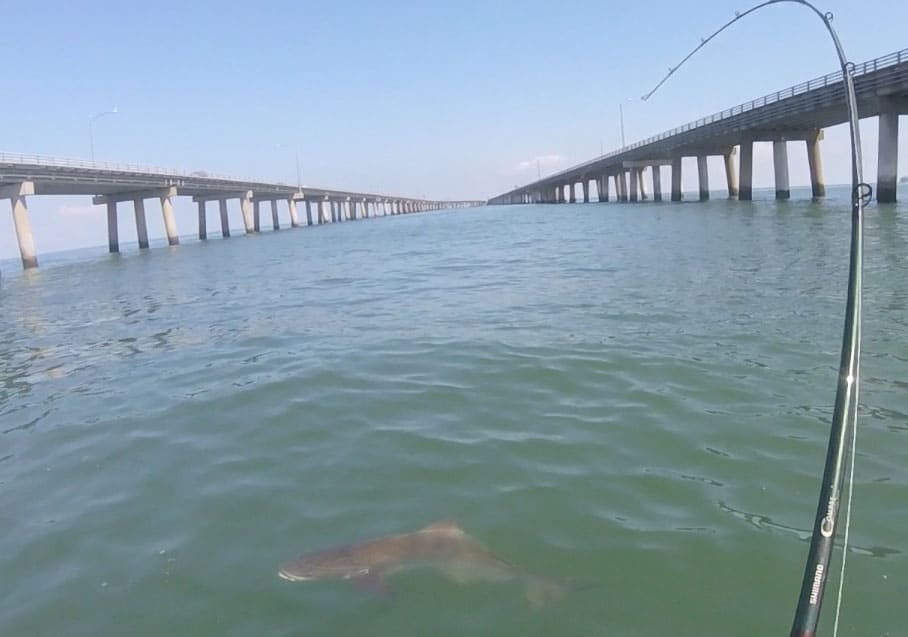VMRC Announces Voluntary Recreational Cobia Initiative for 2023 Season
Posted on: Jun 6, 2023
The Virginia Marine Resources Commission voted at its February 28th meeting to replace the Recreational Cobia Mandatory Reporting Program with the Voluntary Recreational Cobia Initiative. This initiative has been developed by VMRC staff to begin collecting voluntary length and age data from recreational cobia anglers to help assess the health of the stock. This initiative will take effect starting with the 2023 cobia season and taking part in this new initiative is not required to be able to recreationally fish for cobia.

VMRC is looking to collect the following length data from any recreational anglers:
- Released cobia under 40 inches
- Cobia over 50 inches if a 50-plus inch fish has already been harvested
- Cobia caught after the daily allowed bag limit has been reached,
- Cobia caught pre- and post-season.
Recreational anglers can submit cobia release length data through the Virginia Saltwater Journal. If you are an active fish tagger in the Virginia Gamefish Tagging Program, please only submit length data through the tagging program and not through the Virginia Saltwater Journal. The length data submitted through the tagging program will be pooled together with release length data collected from the Virginia Saltwater Journal.
Age Data
VMRC is continuing to collect age data from carcasses of kept legal-sized cobia donated to the Marine Sportfish Collection Project. Donating a carcass for age data does not allow retention of undersized cobia or more than the daily allowable bag limit. Any members of the Gamefish Tagging Program that harvest cobia and would like to donate a carcass can visit any of the freezer sites listed below.
Anglers can donate a filleted cobia carcass for aging at one of the 6 donation freezers found throughout the state:
Oceans East Eastern Shore (Capeville)
Port Messick Marina (Poquoson)
JEB Little Creek (Virginia Beach)
Long Bay Pointe Marina (Virginia Beach)
Lynnhaven Municipal Marina (Virginia Beach)
Mill’s Marina (Seaford)
A basic data sheet will need to be completed and added to the bag with each donated cobia carcass. Several new freezers may be placed at new sites for the 2023 cobia season; to stay up to date with freezer locations, please visit the Virginia Recreational Assessment Program website.
To properly record length data, anglers will measure cobia with the ruler stretched straight underneath the center of the fish, the fish’s mouth should be closed, and the length will be measured to the tip of the pinched tail. Lengths should be recorded to the nearest possible measurement without rounding, while recognizing the goal is a live and healthy release. Release length data should be submitted through “Voluntary Recreational Reporting” in the Virginia Saltwater Journal, and we encourage everyone to submit length data by the end of the calendar year.
When uploading release length data, please only upload the lengths of fish that you have personally measured. Group length data can be uploaded, but only by the angler that measured the fish. To alleviate issues with double reporting please do not upload length data for any fish you did not measure.
How to Get Involved
There is no formal process to begin taking part in this initiative and anglers can begin collecting and submitting release length data through the Saltwater Journal or donating cobia carcasses at any point in the season. Anglers are not required to take part in donating cobia carcasses and submitting release length data, but we encourage all anglers to participate!
If you have any questions about the new initiative or how to become involved, please reach out to Joshua McGilly at (757)247-2299 or Joshua.mcgilly@mrc.virginia.gov.
